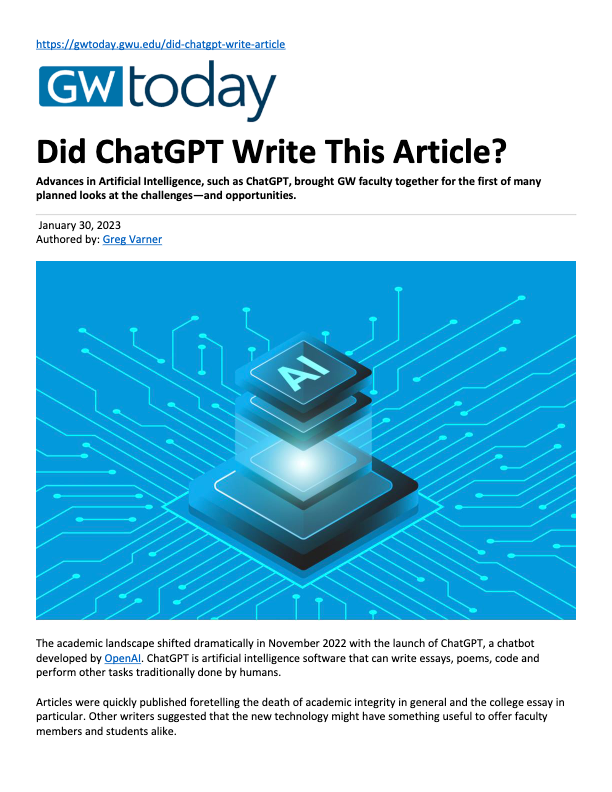AI is in Your Classroom – Even if You Didn’t Know It!
January 18, 2023 ::: News story in GW Today
Alexa Alice Joubin spoke at a roundtable on artificial intelligence and higher education. From AI that write papers, essays, and poems, to those that create art or write computer code, these technologies are quickly impacting on many aspects of higher education.
Advances in Artificial Intelligence, such as ChatGPT, brought GW faculty together for the first of many planned looks at the challenges—and opportunities.
In her presentation, Alexa Alice Joubin sees both danger and opportunity in the new software — one of the dangers being the way ChatGPT can encourage mistaking synthesis for critical thinking.
On the plus side, it can encourage students to apply high-level editorial and curatorial skills to material generated by ChatGPT.
“AI text is actually very repetitive at this point in time,” Joubin said, while noting that it can be expected to improve. ChatGPT may also not be reliable for current events such as the Russian invasion of Ukraine. But the technology is not going away, and the discussion of its use in the classroom will be ongoing.
As reported by GW Hatchet, Alexa Alice Joubin said she has “embraced” instructional AI in the classroom and taught students “prompt engineering,” a way of designing the most suitable prompt to provide the most ideal answer with ChatGPT to build on skills like designing research questions.
“AI is no different than when the calculator was first invented,” she said. “It was disruptive, but it didn’t kill math. The typewriter was invented and was disruptive, but it did not kill writing. AI is just another tool. I think overhyping it is really unhealthy because all those people who are doing the fearmongering have never spent time with this.”
Joubin said ChatGPT would provide enhanced learning opportunities in her English classes through exercises where students can critique AI essays without the “uncomfortable” elements of critiquing another student’s writing in class.
